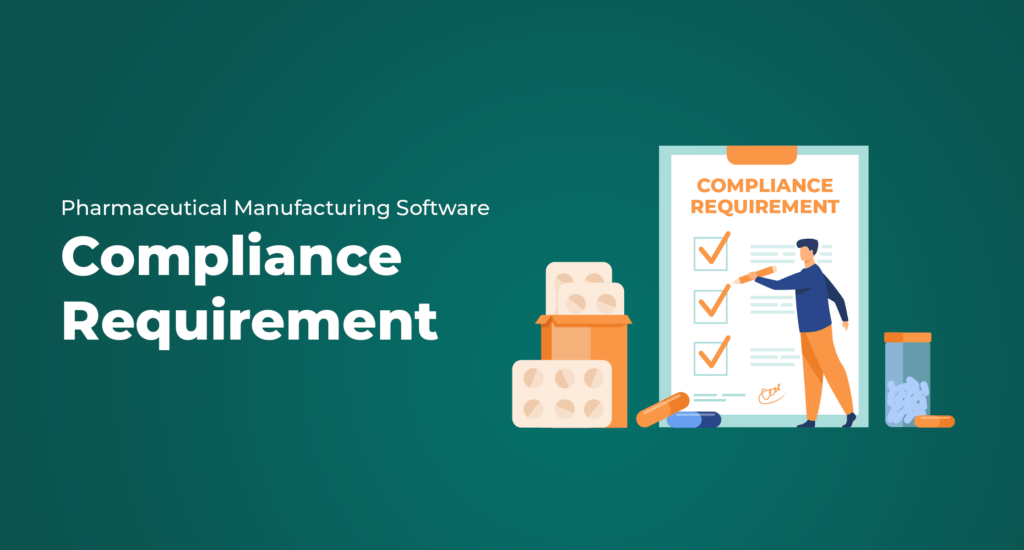
In the ever-evolving world of business, organizations face a myriad of challenges and regulatory compliance remains a crucial aspect of their success. Adhering to industry-specific regulations, data privacy laws, and financial reporting requirements is paramount to maintain trust, mitigate risks, and foster sustainable growth. In this context, an Enterprise Resource Planning (ERP) solution that is compliant with various standards and regulations has become a game-changer for modern businesses. This article explores the importance of a compliant ERP solution and how it can help organizations achieve operational excellence.
A Compliant ERP (Enterprise Resource Planning) solution is an integrated system designed to streamline and optimize business processes while ensuring adherence to relevant regulations and standards. These solutions offer businesses a unified platform to manage various departments, including finance, HR, supply chain, manufacturing, sales, and more. By encompassing compliance as a core feature, compliant ERPs go beyond conventional functionalities to help organizations meet stringent regulatory requirements, maintain data security, and uphold ethical practices.
A compliant ERP system comes equipped with specific modules tailored to adhere to relevant industry regulations, such as 21 CFR Part 11 for Pharmaceutical, GDPR for data privacy, GST for financial reporting, others such as income tax, employee statuary taxes and many such. These tools assist in accurate documentation, auditing, reporting, and ensuring organizations remain legally compliant.
Protecting sensitive business and customer data is of paramount importance in the digital age. A compliant ERP solution incorporates robust security measures like encryption, access controls, IP/device based security, and multi-factor authentication to safeguard against data breaches and unauthorized access.
Compliant ERPs maintain an extensive audit trail that tracks all user activities within the system. This feature is invaluable during audits and investigations, allowing businesses to identify any discrepancies or potential security breaches with ease.
Modern businesses often operate in intricate supply chains with multiple vendors. A compliant ERP system helps organizations track expiry, ensure end-to-end lot and serial number traceability, manage contracts, assess vendor compliance, and ensure that the entire supply chain adheres to necessary regulations and ethical practices.
It is an essential component of a compliant solution, This can apply to many documents where based on the condition-set of the transaction one or more people have to sign the document before it is considered a valid document. For example, if the purchase order(PO) type is for Import and the value is above 1000 USD, the Finance Controller and Head of Purchase must sign the PO
It is critical to ensure that items and lots that are supposed to be dispensed as per the system are physically picked. Bar code and RF ID verification along with weighing scale integration is implemented to ensure this.
It required in many processes for compliance, Such documents must be scanned, stored, and retention for quick retrieval. A built-in document management feature with content search adds significantly to compliance. The ability to link the documents to ERP transactions improves response time for any query from regulatory authorities.
It must be ensured that there is a separate development, Validation, and Production environment of the Pharma ERP maintained with operating system-level access control. it becomes most critical when it comes to cloud-based solutions as the same instance is shared with multiple enterprises.
In today’s digital-only age, it is important to ensure that data is not lost in case of any disaster. A multi-zone 0 data loss disaster recovery solution is critical.
A compliant ERP solution includes features to facilitate employee training and awareness about industry regulations and company policies. Regular training ensures that the workforce remains informed about their responsibilities and promotes a culture of compliance throughout the organization.
By integrating compliance into its core framework, a compliant ERP solution helps businesses reduce the likelihood of non-compliance penalties, reputational damage, and legal complications. This proactive approach minimizes risks and fosters a secure operating environment.
A well-implemented compliant ERP streamlines business processes, eliminates redundancies, and enhances operational efficiency. This efficiency can result in cost savings and improved productivity across various departments.
With real-time data insights and accurate reporting, business leaders can make informed decisions swiftly. This ensures better strategic planning and resource allocation to support the organization’s long-term growth.
Demonstrating commitment to regulatory compliance and data security enhances customer trust and loyalty. Customers are more likely to engage with a company that values their privacy and adheres to ethical business practices.
In a highly competitive market, having a compliant ERP solution can be a differentiating factor that attracts partners, investors, and customers, giving the organization a competitive edge.
As businesses navigate an increasingly complex regulatory landscape, embracing a compliant Pharma ERP solution has become an essential step towards operational excellence. Vision ERP ensures compliance into the core of the operations, organizations can mitigate risks, enhance data security, streamline processes, and foster customer trust. Vision ERP system not only ensures adherence to industry-specific regulations but also paves the way for sustainable growth and success in a rapidly changing business environment.